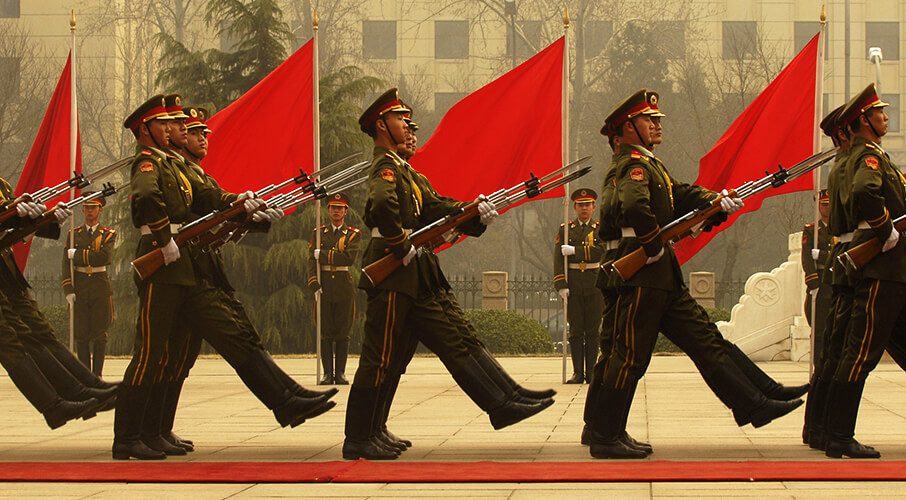 In this kind of environment, any foreign national in China is at potential risk of being disappeared, accused, and paraded on state-run media, of being turned into an unwilling cypher in the CCP’s narrative of propaganda, writes J. Michael Cole.
In this kind of environment, any foreign national in China is at potential risk of being disappeared, accused, and paraded on state-run media, of being turned into an unwilling cypher in the CCP’s narrative of propaganda, writes J. Michael Cole.
By J. Michael Cole, October 15, 2020
Fifty years after the Government of Canada recognized the People’s Republic of China (PRC), we are now witnessing the nadir of this relationship, with recriminations on both sides. And, according to recent opinion polls, the Canadian public has only grown increasingly suspicious of the PRC over the past two years.
Nothing has contributed more to increasingly negative perceptions of China among Canadians than the hostage-taking of Canadian nationals by Beijing’s security apparatus. Before the arrest and subsequent indictment, on espionage charges, of Michael Kovrig and Michael Spavor, very few Canadians were aware of the consequences of dealing with an increasingly influential and authoritarian China. State-sanctioned kidnapping has changed all this, compelling us to take a closer look at the nature of the Chinese Communist Party (CCP) and to realize that we are not dealing with a traditional stakeholder.
Despite its embrace of globalization and uses of capitalism, the CCP remains a Marxist-Leninist party-state apparatus that is driven by an unwaveringly anti-democratic ideology. Decades of engagement with and by the West have not altered this fact, nor has this changed the party’s compulsion to do whatever is necessary to ensure its survival as the sole arbitrator of politics within China. Primarily driven by domestic considerations, this urge has frequently led to behaviour that, to outside observers, appears “irrational,” self-contradictory and self-defeating.
Paranoia, both as a worldview and political instrument, is at the core of the CCP’s strategy for the attainment and sustainment of power. As China strives to regain its “rightful” place as first among equals, the architects of its resurrection have drawn from this well of paranoia to depict any obstacle as part of a foreign conspiracy. Reason, history, and facts have little if any impact on this construct, which underscores Beijing’s claims about Taiwan, the South China Sea, Tibet and Xinjiang. Paranoia also underpins the CCP’s narrative on human rights and democracy, which are treated as both foreign and insidious weapons meant to undermine Chinese aspirations.
All this helps explain why a supposedly modern superpower has resorted to tactics which hitherto had been associated with weak regimes or terrorist groups like Hezbollah and ISIS. Here we are talking about hostage-taking and forced televised confessions. In recent years, the Chinese state has detained several foreign nationals – among them Canadians, Australians, Swedes and Taiwanese – and accused them of engaging in espionage or violations to national security laws that are, by design, vague in their nature and wide in their scope.
But it goes further. In the context of traditional security challenges between states, China’s security apparatus usually limits itself to investing and arresting a suspected individual, whereupon the suspect is sent to court for a ruling. For the CCP, however, political considerations often play a more important role than dismantling a foreign intelligence operation – if such an operation existed to begin with. Rather, the arrest becomes part of a propaganda effort whose object is to exacerbate the paranoia that legitimizes the party-state.
For this, the CCP relies on televised confessions by foreign agents. Evidently scripted and obtained under duress, the highly publicized self-confessions on state media are confabulatory and present as evidence of wrongdoing a chain of “facts” that, in most cases, can easily be debunked. Prominent cases include that of Gui Minhai, a Swedish bookseller captured in 2015, as well as five Taiwanese – Lee Ming-che, Lee Meng-chu, Tsai Chin-shu, Shih Cheng-ping, and Cheng Yu-chin – who have been arrested in China since 2017 and forced to confess to espionage charges.
The last four cases occurred in the past week alone, amid rapidly souring relations between Taipei and Beijing and, in the Cheng Yu-chin case, ostensibly in retaliation over a recent high-level visit by a large delegation of Czech officials and businesspeople to Taiwan which Beijing regarded (erroneously) as a violation of its “one China” principle.
It doesn’t matter that the self-confessions are punctured by inconsistencies and outright fabrication (Cheng’s confession on state-run CCTV, for instance, has him alleging that he was in contact with the head of Taiwan’s representative office in Prague who used the diplomatic position as cover for his work in Taiwan’s intelligence service. The problem: no such person exists). The aim is to reinforce paranoia with the Chinese public, to demonstrate that foreign elements are involved in machinations to destroy China and all the good work the CCP has done for the Chinese people. This paranoia, in turn, reinforces the Chinese nationalism the CCP has cultivated since the Tiananmen Square Massacre in 1989.
The alleged spies, therefore, are mere political instruments, victims of circumstance and the vagaries of Beijing’s oft-contentious relations with the outside world. In this kind of environment, any foreign national in China is at potential risk of being disappeared, accused, and paraded on state-run media, of being turned into an unwilling cypher in the CCP’s narrative of propaganda.
J. Michael Cole is a Taipei-based senior fellow with the Macdonald-Laurier Institute in Ottawa and the Global Taiwan Institute in Washington, D.C. He is a former analyst with the Canadian Security Intelligence Service.




